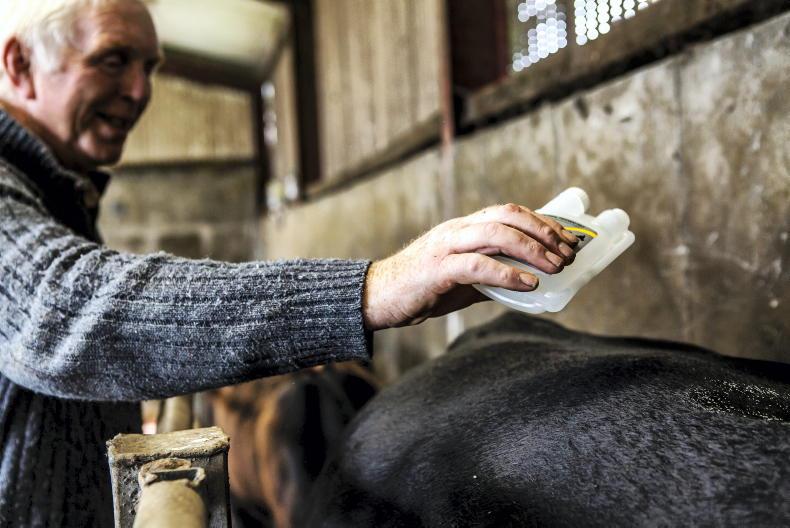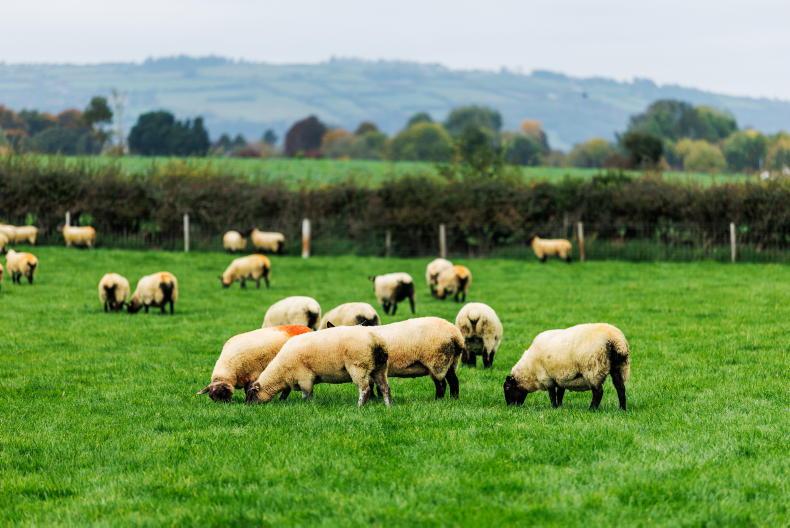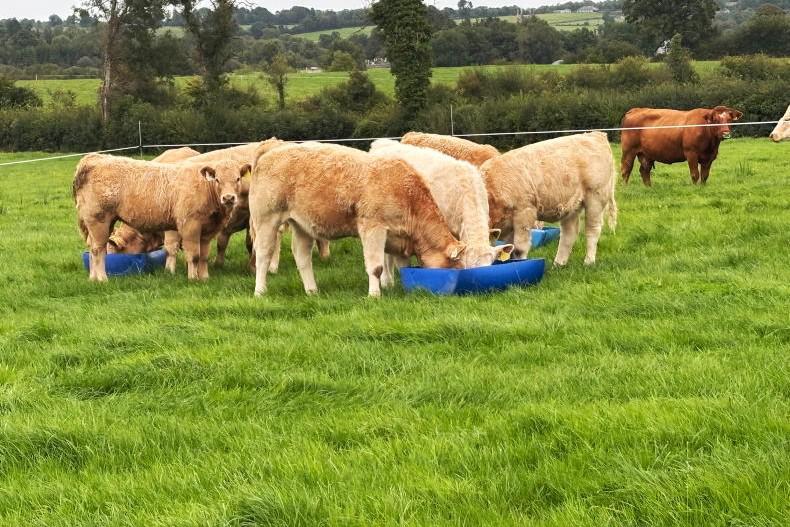Fly activity
Watch out for summer mastitis over the coming weeks. If detected early it can be treated quite successfully but it can be easily missed, as these stock groups often do not get the same attention as spring cows or growing cattle.
Summer mastitis is less common in spring-calving cows as the calf is sucking the cow regularly, but it can occur in late calving cows where calves are unable to suck all four quarters.
High risk areas are those with trees, close to water or that have plenty of hedges, as this will attract flies. Prevention is better than cure.
Treating cows with a pour on insecticide can help prevent it, but the cover period varies with different products. As the peak risk period is normally in late July and August, cows may need a second treatment.
Applying tar can work, but that’s less practical, as it needs to be reapplied every three to four days. Cows with summer mastitis will have a swollen udder and flies around the teat.
The swollen udder causes discomfort to the animal, which results in stiffness and lameness when walking. Cows generally develop a temperature, become isolated and dull in appearance.
When drawing a quarter, the characteristic thick, clotted secretion is present. If an antibiotic tube is being used to treat an infected quarter, make sure you clean the teat and use a glove.
Good hygiene and preventing further infection is very important.
Grass Quality
Grazing fields are heading out on many farms and grass has become stemmy. This grass has a lower feeding value and will just keep animals full with no weight gain. Topping is necessary to get these fields back into quality grazing.
With diesel at €1.50/litre, topping isn’t cheap so make sure it’s done right. Cut low enough – a disc mower is the ideal machine for the job.
Topping too high will only increase the amount of stem in the sward and will serve no purpose. Spreading 20 units/N/acre will help maintain leaf.
BDGP Samples
Any outstanding hair sample kits or tags already on farm should be returned as soon as possible to make sure there are no delays in processing the 2022 BDGP payment.
If you have already sold animals that were due for sampling, you need to sample different animals that haven’t already been genotyped on your farm to meet the 60% genotyping requirement in 2022.
New orders can be placed by logging into your HerdPlus account on www.icbf.com. Alternatively, hair card orders can be processed over the phone.
Save the Date – Tullamore Farm Open Day
Our Beef and Sheep Open Day will take place on the Tullamore Farm (R35AT81) on Tuesday 26 July from 10.30am to 5pm and is supported by AXA Insurance. The day will feature farm tours, trade stands and workshops.
There will also be a full financial breakdown of the 2021 performance of the farm and the effect that the next CAP reform will have. A seminar on the future of the Irish beef industry will be held at 3pm with an industry led panel, followed by a Q&A. You can register now at www.ifj.ie/tullamorefarm. Parking and entry is free.









SHARING OPTIONS